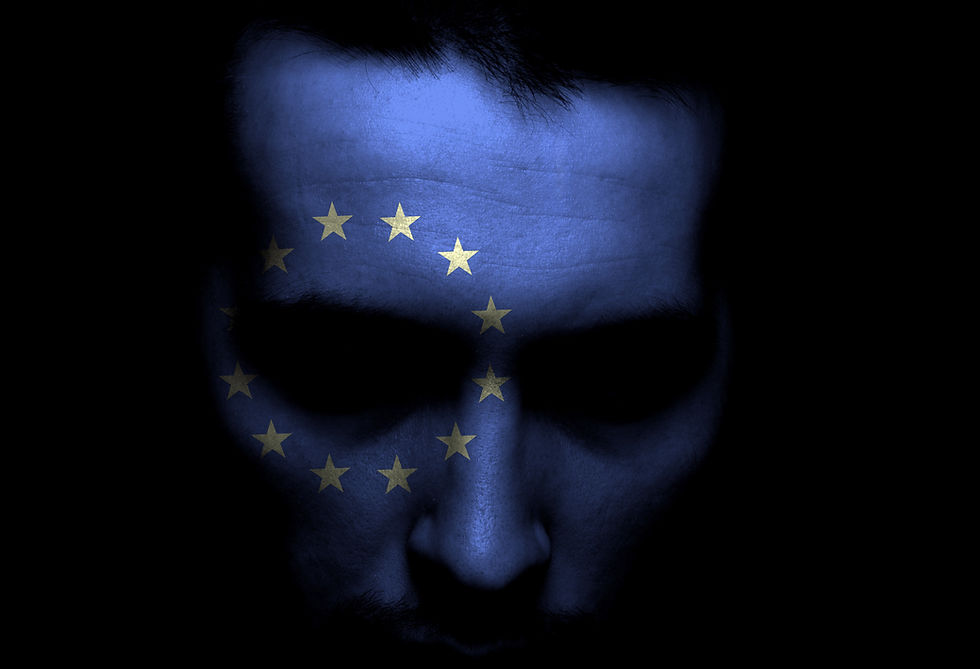Developments in the EU: Digital Single Market and beyond
- Mary Honeyball
- Jun 4, 2019
- 4 min read

The Digital Single Market is part of the Europe 2020 strategy and was one of the primary political priorities of the Juncker Commission.
It aims to facilitate an EU-wide regulatory framework, which ensures the free movement of persons, services and capital under conditions of fair competition and high levels of data protection, for the online world. The Digital Single Market strategy is based upon three pillars:
(1) Access to digital goods and services across Europe; (2) Creating the conditions for digital networks and services to thrive, particularly by creating a competitive and level playing field; and (3), by maximising the growth potential of the European digital economy.
The implementation of this policy enables greater cross-border access for citizens to online goods and services, whilst reducing barriers, providing legal clarity, and increasing opportunities for EU businesses and start-ups to grow in a European Market of 500 million people.
The Digital Single Market spans multiple fields connected to the digital sphere. These include e-commerce, EU copyright Laws, EU audio-visual rules, ePrivacy regulation, tackling geo-blocking, the data economy and cybersecurity. During the Juncker Commission, there have been numerous successes in the field, including the end of EU roaming charges, the General Data Protection Regulation, and the Copyright Directive. The Commission has also invested heavily ICT research, including the Horizon 2020 research-funding programme, and a total of 37 billion euro has been invested in digital innovation. It has also invested 6.7 Billion euro into the development of e-infrastructures such as the European Cloud initiative designed to fully exploit the benefits of Big Data and Open Science, and 1 billion euro into the European High Performance Computing Joint Undertaking to establish a world-class super-computing infrastructure. Furthermore, the EU has set ambitious targets for building digital infrastructures across its Member States, including the Common EU broadband targets for 2025, the development of EU-wide Wi-Fi through the WIFI4EU voucher scheme, and the 5G Action Plan.
Perhaps the biggest victory amongst these has been the creation of EU copyright regulation. The Copyright Directive, passed earlier this year, will provide greater legal clarity for online platforms that distribute copyrighted content, whilst also ensuring fair remuneration for those whose content is exploited online. The Copyright Directive is the EU Digital Single Market at its best. A regulation that fosters EU-wide competition on a level-playing field, and which ensures fair remuneration for creators whilst providing legal clarity for platforms and consumers.
In the next legislature, the EU will no doubt continue its work in the Digital Single Market. As discussed, it already has set ambitious targets for the development of EU-wide Wi-Fi infrastructure, a European Cloud initiative and a High Performance Computing infrastructure. The Commission highlights particularly the general need for action in the EU Data economy through the creation of a European Data Space, by reworking the current PSI directive into a new ‘Open Data and Public Sector Information Directive’ that will make public sector and publicly funded data re-usable. This will help to support particularly the development of Artificial Intelligence in key areas, as well as the fight against societal challenges. Alongside this directive, the EU seeks to ensure a fair and competitive market for the Internet of Things (IoT) and has already established draft principles for companies when drafting IoT related contracts. These sorts of principles will be important particularly for technologies such as blockchain, where various companies are already working on M2M autonomous models.
Here, the EU demonstrates its greatest strength as an institution by taking on the challenges of the future through good preparation, collaboration and consensus. On the Digital Single Market, the EU has been ambitious, and that ambition is paying dividends. The EU has built and is still building a cross-border environment which supports businesses and start-ups and increases access and opportunity for its citizens, and all whilst leading the way on regulation that would not be possible if pursued alone.
Our C8 Copyright Seminar will tackle these latest developments and challenges in the world of copyright. We are delighted to welcome Mary Honeyball as a speaker on Developments in the EU: Digital Single Market and beyond.
Please see the full programme below and find more information on www.c8associates.com/c8-copyright-seminar
The seminar will take place on the 25th of June from 1 to 5pm in the British Library’s Knowledge Centre followed by networking drinks. The seminar is limited to 25-30 participants to ensure an interactive setting.
Our programme consists of:
Our draft programme consists of the topics listed below
1pm Welcome with Dominic McGonigal, Conference Chair
1:15pm Developments in the EU: Digital Single Market and beyond with Mary Honeyball, MEP
1:55pm Developments in the US: Modernizing Copyright with David Carson, former General Counsel, U.S. Copyright Office
2:35pm International Developments: Global Markets with Adam Williams, Director of International Policy, UK IPO
3:15pm Tea and Coffee break
3:30pm Copyright and the Challenges of New Tech: AI and Blockchain with Tanya Aplin, Professor of Intellectual Property Law, King's College
4:10pm The Future Trends of Copyright: A panel discussion and questions with the speakers chaired by Dominic McGonigal
5:00pm Networking Drinks

Mary Honeyball - MEP and currently Labour Party spokesperson for legal affairs and a member of the Legal Affairs Committee. She also has a range of senior management experience in non-governmental sector.





Comments